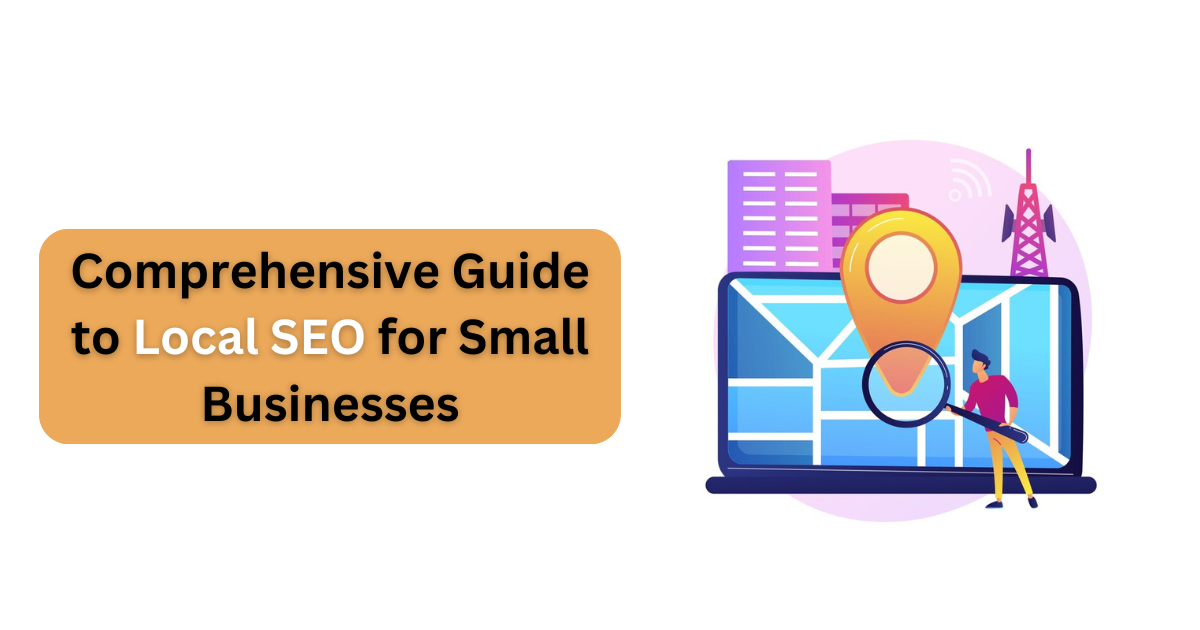Comprehensive Guide to Local SEO for Small Businesses

Local SEO is a critical aspect of digital marketing that helps small businesses compete effectively in their geographic area. It focuses on optimizing your online presence to attract more customers from local searches. For small businesses, the ability to connect with nearby customers through local search results can be transformative. According to recent studies, 46% of all Google searches have local intent, and 78% of local mobile searches result in an offline purchase. This guide will walk you through the essentials of local SEO, its benefits, and actionable strategies for small businesses.
What is Local SEO?
Local SEO is the process of improving your website and online presence to increase visibility in local search results. These are searches that include location-specific terms like “near me” or city names.
Unlike traditional SEO, which targets broader search queries, local SEO focuses on connecting businesses with customers in their physical vicinity. For example, when someone searches for “coffee shop near me,” the results prioritize local businesses with optimized profiles. Mastering local SEO for small businesses an advantage over larger brands by focusing on their immediate region.
Benefits of Local SEO for Small Businesses
Implementing local SEO offers several advantages:
-
Increased Online Visibility
Appearing in local search results makes it easier for potential customers to find your business. This visibility is especially vital for businesses relying on foot traffic or local clients. -
Higher Foot Traffic
Optimizing for local SEO increases the chances of customers visiting your physical location after finding you online. Tools like Google My Business (GMB) make it seamless for users to locate your business. -
Enhanced Credibility
Listings with positive reviews and accurate information build trust with customers. A well-maintained online presence signals professionalism and reliability. -
Improved Conversion Rates
Local searches often have high intent, meaning users are more likely to take action, such as visiting your store or making a purchase, compared to non-local queries.
Key Elements of Local SEO
To succeed in local SEO, you must focus on the following elements:
-
Google My Business (GMB) Optimization
Claiming and optimizing your GMB profile ensures your business appears on Google Maps and local search results. Complete your profile with accurate details, photos, and updates. -
Local Keywords and Content
Incorporate location-specific keywords in your website content, meta descriptions, and headings to attract local traffic. -
Online Reviews and Reputation Management
Positive reviews on platforms like Google and Yelp influence consumer decisions. Encourage satisfied customers to leave feedback and address negative reviews promptly. -
Local Backlinks and Citations
Secure backlinks from local directories, organizations, or blogs to strengthen your local presence. Ensure your business’s Name, Address, and Phone Number (NAP) are consistent across all platforms. -
Mobile-Friendly Website Design
Most local searches occur on mobile devices. A mobile-friendly website ensures users have a seamless browsing experience.
How to Create a Local SEO Strategy
Claim and Optimize Your Google My Business Profile
Start by claiming your GMB listing. Ensure all information is accurate, including your business name, address, phone number, and working hours. Add high-quality images and respond to customer reviews.
Research and Use Local Keywords
Use tools like Google Keyword Planner or Ubersuggest to identify keywords with local intent. For instance, instead of targeting “bakery,” focus on “bakery in Chicago.”
Create Locally Focused Content
Develop blog posts, guides, or resources that cater to local audiences. Topics like “Top 5 Desserts to Try in [City]” can attract local searchers.
Build Local Links and Citations
Partner with local organizations or participate in community events to earn backlinks. List your business in online directories like Yelp, Yellow Pages, and industry-specific sites.
Gather and Manage Customer Reviews
Request feedback from happy customers and make it easy for them to leave reviews. Reviews boost your credibility and improve your chances of appearing in the “local pack.”
Optimize for Mobile and Voice Search
Ensure your website is responsive and loads quickly. Voice search optimization involves using natural, conversational language in your content.
Use Social Media for Local Engagement
Leverage platforms like Facebook, Instagram, and LinkedIn to connect with your local community. Share updates, promotions, and event details to keep followers engaged.
Common Mistakes to Avoid in Local SEO
-
Ignoring Google My Business Updates
Failing to update your GMB profile with changes like holiday hours or new services can lead to customer frustration. -
Neglecting Reviews or Negative Feedback
Ignoring online reviews, especially negative ones, can harm your reputation. Addressing complaints shows you value customer feedback. -
Using Irrelevant Keywords
Focusing on broad or generic keywords rather than localized terms can dilute your SEO efforts. -
Lack of Local Content
If your website doesn’t include content tailored to your area, it may not rank well for local searches. -
Inconsistent NAP Information
Ensure your business’s Name, Address, and Phone Number are consistent across all online listings. Inconsistencies can confuse search engines and customers.
Advanced Local SEO Techniques
-
Leveraging Local Schema Markup
Use schema markup to help search engines understand your business better. It can improve your chances of appearing in rich snippets. -
Geotagging Images and Videos
Adding geographic metadata to your multimedia files can enhance your local search visibility. -
Running Local PPC Campaigns
Combine local SEO with pay-per-click advertising to dominate search results for your area. -
Participating in Local Community Events
Hosting or sponsoring events can generate buzz and provide opportunities for online mentions and backlinks.
Measuring the Success of Local SEO
Track your local SEO efforts using the following tools:
-
Google My Business Insights
View data on how customers find your business, including search terms and device types. -
Google Analytics
Measure traffic, bounce rates, and conversions from local search queries. -
Google Search Console
Monitor search performance and fix technical SEO issues.
Tracking metrics like website traffic, call volume, and in-store visits will help you evaluate your progress and refine your strategy.
Conclusion
Local SEO is an indispensable tool for small businesses seeking to grow their presence in the community. By optimizing your online profiles, creating localized content, and engaging with your audience, you can attract more customers and stand out from the competition. Start implementing these strategies today to harness the power of local SEO and take your business to the next level.
FAQs
-
What industries benefit most from local SEO?
Restaurants, retail stores, service providers, and healthcare practices see significant benefits from local SEO. -
How long does it take to see results from local SEO?
Typically, 3-6 months for noticeable improvements, depending on competition and effort. -
Is local SEO cost-effective for small businesses?
Yes, local SEO provides high ROI as it targets ready-to-buy customers in your area.






